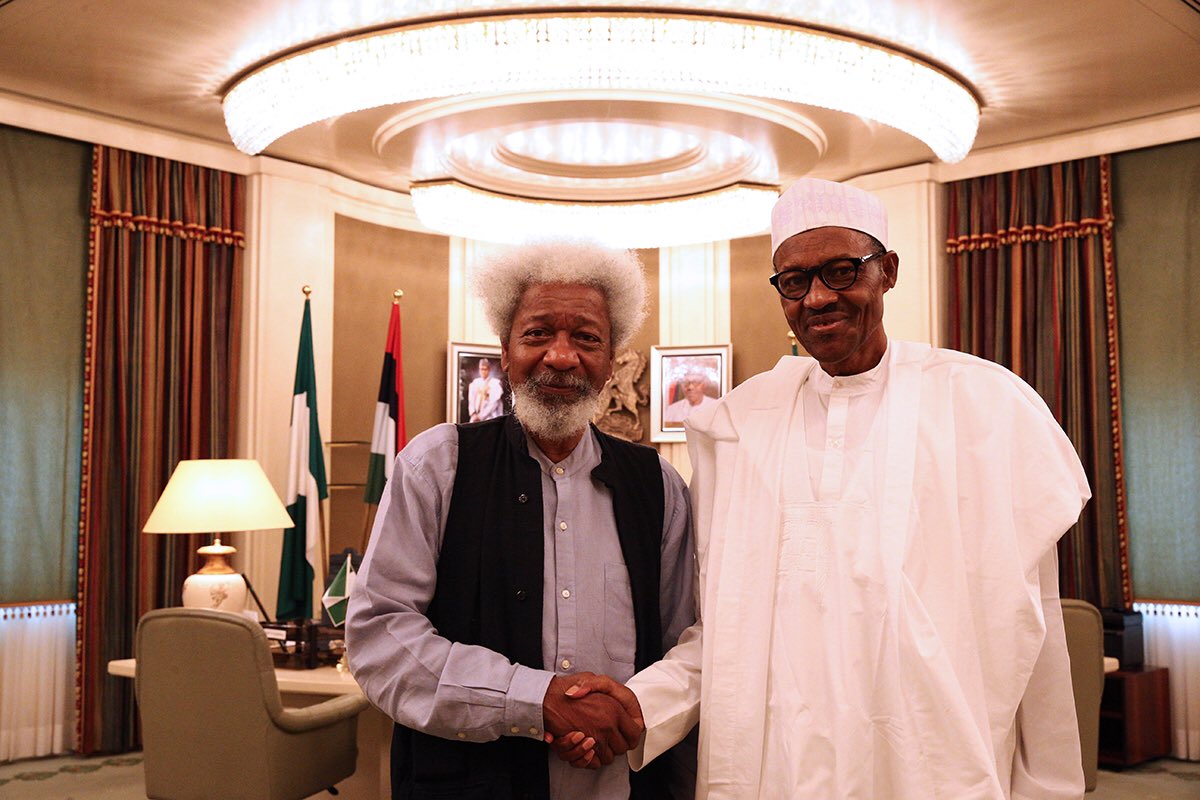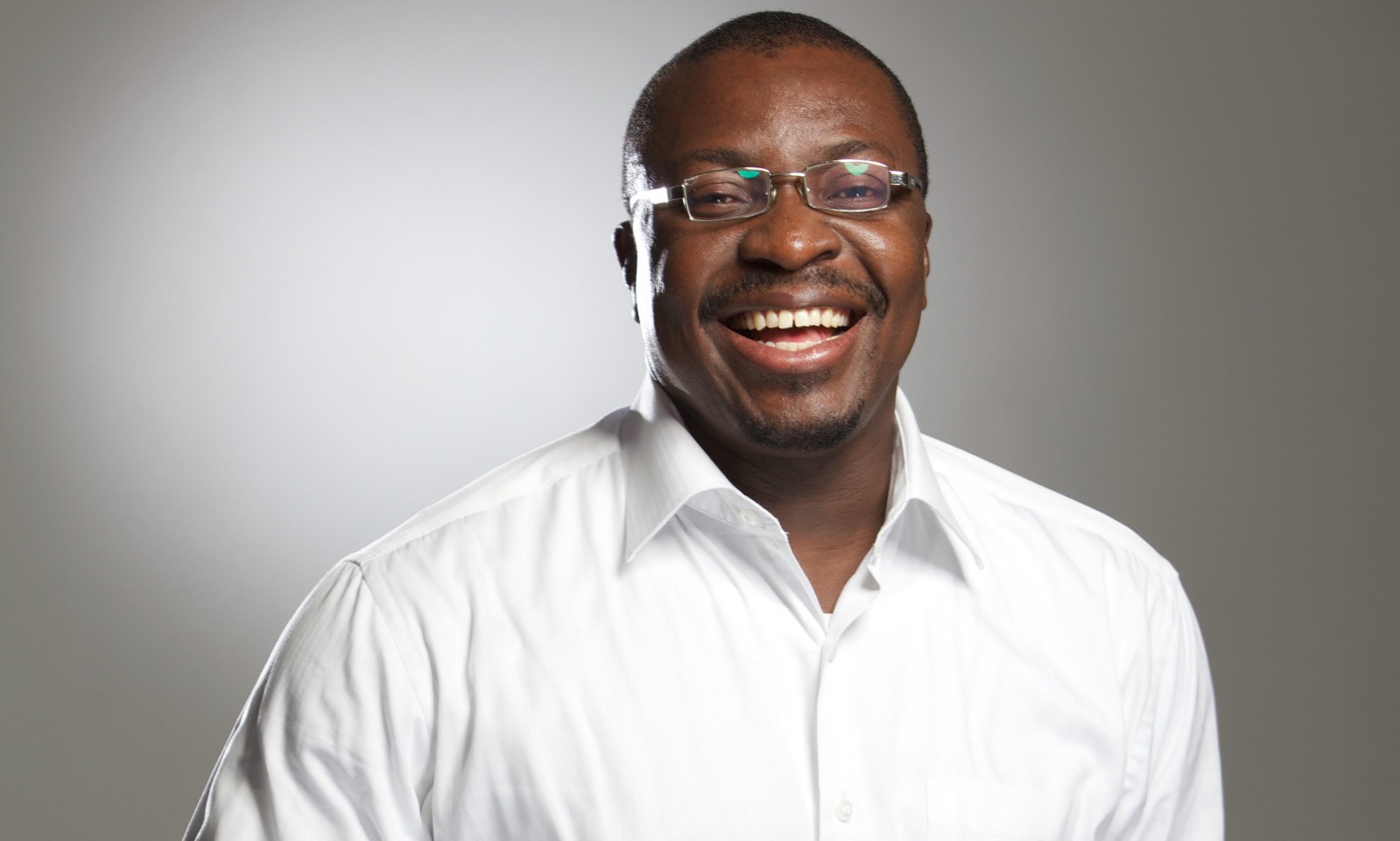“Nobel laureate, my intellectual hero, a national treasure and a literary icon, Professor Wole Soyinka, who is the focus of this article,” Shaka Momodu writes on the Nigerian economic situation.
[dropcap]T[/dropcap]he constant stream of bad news on the state of the economy, nay the state of the nation leaves one feeling down in the dumps. And there is no one else to blame other than ourselves. I am not proud to say: some of us saw it coming. We shouted ourselves hoarse warning the electorate to shine their eyes and that a trap had been set for them but unfortunately, they walked straight into it. The All Progressives Congress, APC, made specific and out-of-this-world promises, misleading the people about their real plans.
From that tantalising glimpse of the future that the party’s programmes gave the electorate, the people have now suddenly found themselves in a cul-de-sac and are gnashing their teeth in horror at the turn of events. The level of misery is such that has never been seen in this country. Some of us stated clearly and unambiguously then that despite all the rebranding of then Candidate Muhammadu Buhari with different ethnic/tribal attire, the evidence in the public domain contradicted the marketing narrative.
But in the end, more people acted out of emotion rather than reason. Sixteen months after, we are all frozen in a nightmare economic recession. The signs were there then when JP Morgan gave Nigeria notice to take appropriate measures on the economy and that it found it improbable for Buhari to delay constituting a cabinet.
This was also followed in September last year, when the CBN warned that action needed to be taken on the fiscal side and quickly in order to avoid a recession in 2016. But all that sounded hollow to the ears as the president was carried away by his obsession of fault-finding in every decision and action of the last government. More so as the mob gyrated in new acrobatic dance steps celebrating his magical body language that suddenly cured many national malaise.
Those who should have seen the signs of trouble on the horizon poured encomiums on him for building “the Nigeria of our dreams”. And something new entered our political lexicon: “the Buhari Born Again Phenomenon” from no less a person than our own Nobel laureate, my intellectual hero, a national treasure and a literary icon, Professor Wole Soyinka, who is the focus of this article.
His recent missteps on the national stage have led me to begin to question my sanity vis-a-vis the ancient truth as we know it, the propriety of right and wrong, the morality that underpins everything I have come to know about Soyinka and the motivation behind most of his interventions on national issues.
I must admit I have agonised to no end over the strange friendship between this intellectual legend and the rabble-rousing “noisemaker” called Rotimi Amaechi, a man whose ruinous eight-year tenure stands in infamy when matched with the trillions of naira his state was awash with during his time as the governor of Rivers State. Don’t mind the revisionists who would have us believe he was the best thing to happen to the state.
But how can he be the best? He blew a dump trough full of cash on nothing. His abandoned monorail which only achieved a distance of 1.2 kilometres of work out of a mere 5.4 kilometres project after six years, with billions of naira sunk into it, stands as the single most enduring legacy of waste and corruption in the history of modern governance. Yet he is a hero to many lettered people who daily assail us with awe-inspiring lectures on good governance. The man even had the effrontery to tell Nigerians recently that N3.4 trillion in cash and assets has so far been recovered from looters. The question now is who will recover the jaw-dropping monorail money from him?
Soyinka shares nothing in common with this man in terms of progressive ideas, public conduct, not even the love of the written word despite the latter’s pretence by hosting the Book Capital as a demonstration of his love of knowledge when he was governor. But for some inexplicable reason they have become the best of friends – it’s a nightmare for me. I feared that the younger generation might begin to think that Amaechi’s impulsive and petulant behaviour was exemplary. It didn’t take long for my fear to turn into horror and grief. I had to yell at a lad recently in my neighborhood to perish the thought when he said Amaechi was his role model. You can imagine how grief-stricken I was.
Amaechi’s gain was having Soyinka sturdily stand by him in the days of his “persecution” by the last government, such that Soyinka occasionally held world press conferences on the state of the nation which usually turned out to be in robust defence of Amaechi in his war of attrition with the former president, Goodluck Jonathan and his wife. Soyinka deployed his prodigious words to help Amaechi, even describing the wife of the then president as a “shippopotamus”. It was indeed a low moment for an honourable man like Soyinka who has fought many battles with dignity and brought many laurels home.
Soyinka loves to hold world press conferences on the state of the nation and he has never shied away from a fight. There’s no doubt about it. He has been the scourge of many governments since the 1960s, more so military dictators whom he fought with every ounce of energy in him and saw their backs. But something appears to have changed about Kongi, at least recently.
His roar of disapproval seems to have become nothing more than a subdued whimper not on account of his old age, for age has neither blurred his vision, nor diminished his intellect, but by the circumstances of his own political association and choices. The same Soyinka whose interventions had served the nation well in the past to rein in some excesses of power is now unable to stand up in the face of the illusion of the change he and others helped to foist on the nation.
He is probably too embarrassed by the calamity the change he endorsed has brought on the country and instead of admitting it, he recently shied away from addressing the state of the nation-cum-economy on the lame excuse that he had changed his mind. How can he change his mind at this crucial moment in our history especially considering his role in bringing this government to be? Why is he tongue-tied? Did he take a cup of tea when he visited the Presidential Villa? I asked because mischief-makers say, once you sip a certain tea at the villa, it has a way of making someone’s confidence and enthusiasm to flag.
His meeting with Buhari recently was significant. It would have afforded him a first-hand glimpse of the “plausible transformation,” or change if any from the president. And if my memory serves me correctly, it was the first (please correct me if I am wrong on this) between the laureate and the former dictator and was three decades in the making. As I looked intensely at the picture of the duo shaking hands, those Soyinka’s words in January 2007 on Buhari’s quest to head a democratic government rang out loudly in my head: “The grounds on which General Buhari is being promoted as the alternative choice are not only shaky, but pitifully naive. History matters. Records are not kept simply to assist the weakness of memory, but to operate as guides to the future.
“Of course, we know that human beings change. What the claims of personality change or transformation impose on us is a rigorous inspection of the evidence, not wishful speculation or behind-the-scenes assurances. Public offence, crimes against a polity, must be answered in the public space, not in caucuses of bargaining. In Buhari, we have been offered no evidence of the sheerest prospect of change. On the contrary, all evidence suggests that this is one individual who remains convinced that this is one ex-ruler that the nation cannot call to order.”
He further stated: “One is only too aware that some Nigerians love to point to Buhari’s agenda of discipline as the shining jewel in his scrap-iron crown. To inculcate discipline, however, one must lead by example, obeying laws set down as guides to public probity. Example speaks louder than declarations, and rulers cannot exempt themselves from the disciplinary strictures imposed on the overall polity, especially on any issue that seeks to establish a policy for public well-being.” It was a damning verdict on Buhari’s presidential ambition in 2007.
But in 2015, Soyinka made a seismic shift in position without providing the sheerest evidence of what had changed. This is what he said to justify his endorsement of Buhari: “I have studied him from a distance, questioned those who have closely interacted with him, including his former running mate, Pastor Bakare, and dissected his key utterances past and current. And my findings? A plausible transformation that comes close to that of another ex-military dictator, Mathew Kerekou of the Benin Republic.
“Despite such encouraging precedents, however, I continue to insist that the bridge into any future expectation remains a sheer leap of faith. Such a leap I find impossible to concede to his close rival, since we are living in President Jonathan’s present, in an environment that his six years in office have created and now seek to consolidate.”
Anyone reading these two brief excerpts from Soyinka would easily see which of the assessments was on point and which was deeply flawed at least going by the evidence re-enacted in the public domain in the last 16 months of this administration. I have said umpteen times that I don’t believe Soyinka endorsed Buhari because he believed in his heart of hearts that the ex-maximum ruler had truly changed; he merely endorsed his political associates and friends’ pitch. He did it without the sheerest evidence that Buhari had changed, falling miserably short of the very standard he himself had set for those who claimed Buhari had changed in 2007.
His interaction with Tunde Bakare, Buhari’s former running mate, was merely working to an answer he himself had already arrived at. The question is: did he expect Bakare to tell him otherwise? Soyinka claimed to have also dissected Buhari’s key utterances before coming to the conclusion of “plausible transformation”. Which of Buhari’s key utterances did our Nobel laureate dissect?
Between 2007 and 2015, Buhari said nothing inspiring and national in outlook that could have forced such a seismic change of mind from Soyinka. In short, nearly every of his (Buhari’s) conduct was incongruous and was openly antagonistic to national cohesion. So Soyinka’s endorsement of Buhari must be seen for what it was: an act of sheer desperation to key into the frenzied thirst and nostalgia for the nightmare of the 1980s that gripped the nation in 2015. His “leap of faith” has obviously landed the country in a dark alley.
While his missteps may have taken something priceless from him, a part of him will forever be dear to our hearts.
Shaka Momodu is a columnist with ThisDay where this article was first published. He can be reached by email HERE.
The opinions expressed in this article are solely those of the author.







